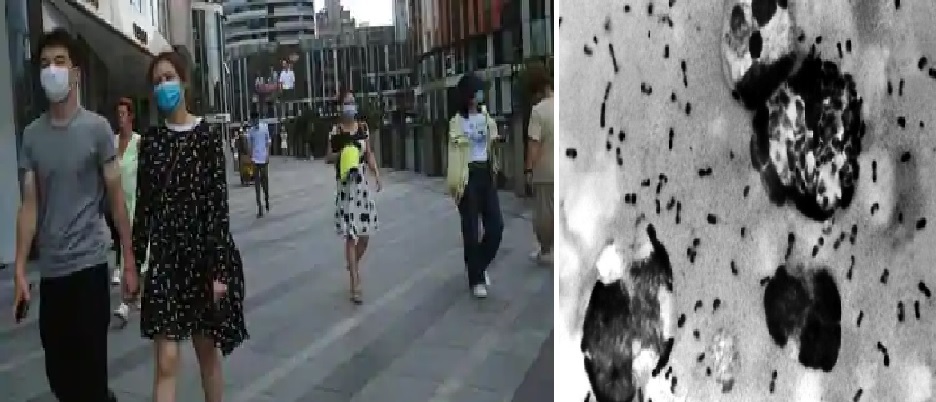Incidentally, WHO which failed to alert the world about the threat of Wuhan virus aka COVID19, has said that the Bubonic plague reported from China occupied inner Mongolia is ‘not high risk’.

Reports coming from China indicate that cases of bubonic plague in occupied Mongolia have been rising. Doubts have been cast over the way the cases are being handled and the region cases are being reported from. While China has officially claimed to have eradicated plague, its re-occurrence in a region illegally occupied by it have given rise to doubts if it is yet another biological experiment of China to be unleashed on the world just like the Wuhan Virus.
Chinese news agency Xinhua had reported that Mongolia had also confirmed two cases of Bubonic plague last week where brothers who had eaten marmot meat in Khovd province were found infected. Authorities in the Bayannur district of occupied Mongolia raised the plague warning on Sunday. The residents were ordered not to hunt wild animals such as marmots and to send anyone with fever or showing other possible signs of infection for treatment. China is yet again accused of hiding crucial information of the plague which could be much worse that what is being reported from the region.
The Wuhan virus has killed over 5 lakh people across the world with nearly 12 million affected from the virus. But both China and WHO failed to alert the world on time, resulting in the deadly pandemic the world is suffering today. The latest outbreak of Bubonic plague has all the features of the Wuhan virus episode from last December. Bubonic Plague can be fatal in up to 90% of people infected if not treated on time. Doctors believe that delay in detecting the plague can be deadlier than Wuhan virus.
WHO absolving China again?
Reacting to the reports of Bubonic plague in China occupied inner Mongolia, WHO has characteristically said case was being “well managed” by China and it does not consider it to be of high risk. WHO had used the exact words to describe Wuhan virus in December 2019. And in January 2020 WHO had claimed that there were no proof of human-to-human transmission of Wuhan virus. Later it changed its version but absolved China repeatedly.
Few days ago, a WHO official said that the Wuhan virus could be airborne for longer periods than suspected. The WHO has repeatedly changed its stance on the nature of Wuhan virus and experts hope that WHO is not committing the same mistake again with respect to the Bubonic plague cases reported in China occupied inner Mongolia.
As of today, neither China nor WHO have asked people outside the province to be tested for the plague. The true extent of the spread is unknown or if any travelers from China have carried the virus already. Airports and point-of-entries in all countries will prepare to test for the virus only after their country’s medical body alerts them based on WHO’s recommendation. However, given WHO’s reputation during the Wuhan virus spread, countries have to be prepared to handle yet another virus from China on their own.














Comments